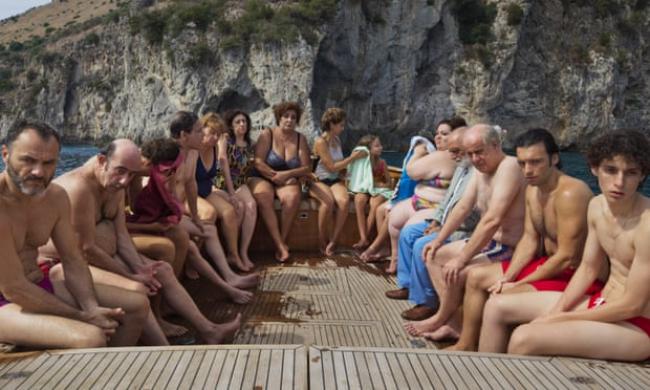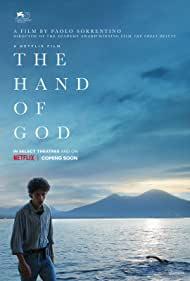From Oscar-winning writer and director Paolo Sorrentino (THE GREAT BEAUTY) comes the story of a boy in the tumultuous Naples of the 1980s. Sorrentino’s most personal film yet is a tale of fate and family, sports and cinema, love and loss.
|
The Hand of God review – Paolo Sorrentino exposes his childhood trauma
At 16, Paolo Sorrentino returned home to find that both his parents were dead, killed by a carbon monoxide leak. On the night of the tragedy, Sorrentino was inside a football stadium, watching Diego Maradona play for his local team, Napoli. Afterwards, he would say – not wholly joking – that Maradona saved his life. More than three decades on, in the middle act of a career that has already won him an Oscar, the Italian film-maker has retraced his steps, turned back the clock and fashioned this foundational horror into a fevered coming-of-age tale, a movie that played to a capacity crowd here in Venice. The Hand of God, no surprise, is Sorrentino’s most nakedly personal film to date, almost to a fault in the way it jettisons the cool distance of The Great Beauty or Il Divo in favour of a sweaty, close-up evocation of youth. It’s a picture only Sorrentino could make. But that doesn’t necessarily make him the safest pair of hands. It’s Naples in the late 80s, which means lawlessness, rogue behaviour: smugglers in the bay and cops in hot pursuit, and the population in thrall to either cinema or football. Sorrentino casts handsome Filippo Scotti as his alter ego Fabietto and has regular collaborator Toni Servillo masquerade as his dad, but for a while he’s content to have them both lost in the mix, folded in amid the big, noisy Schisa family. The director immerses himself in the milieu like a pubescent Proust, to the point where we can almost smell the aftershave and tobacco. He is summoning up a kind of sun-blasted lost Eden, vulgar and vital and burnished by his memory. One suspects it grows more golden, more vivid with every passing year. When tragedy strikes, Fabietto is bereft, bouncing off the hospital walls, struggling to make sense of it all. No doubt Sorrentino is still doing the same, figuring out the ways in which his parents’ death shaped him, made him who he is today. So he has Fabietto decide, seemingly out of the blue, that he wants to direct films. He gives him a muse and a mentor and sets him on the right path. One day, we assume, the kid will win an Oscar of his own. I’m glad that Sorrentino has got this film out of his system. I’m impressed that it’s emerged so full of bawdy vigour; still raw in the retelling and spiced with delicious set pieces. Is it redundant to worry that he’s too close to the material? His account of adolescence at times feels adolescent itself, replete with garish caricatures and crude sexual politics. It’s a story that Sorrentino has spun around real events, a creative response to disaster, with himself at the centre and everybody else in his orbit. He’s crawled through the mire. He’s survived and he’s prospered. He now gets to print his own legend 10-foot high on the screen. - Xan Brooks, The Guardian |




